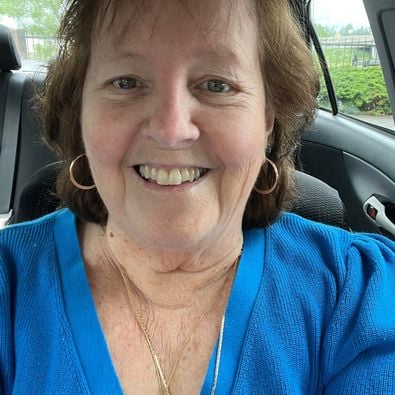
[caption id="attachment_171616" align="aligncenter" width="1180"] Image: Pixabay.com (2016), CC0/PD[/caption]
Image: Pixabay.com (2016), CC0/PD[/caption]
As we continue working through the “stay at home” necessity during this pandemic, remembering to frequently wash our hands, wearing masks when a trip to the store is needed and most important, distancing ourselves from family, friends and co-workers; it occurred to me that my own mother, Dorothy, had to live through so many different challenges. For her, it was her Catholic faith and daily prayers which gave her strength she needed to cope with it all.
Dorothy was born on July 19, 1915. She was the sixth child of 13 born to William and Ellen Rasmussen, and the family lived through many difficult times. There was a pandemic later titled the “Spanish flu” that was a concern. What began in the summer of 1917 lasted through the winter of 1920. The first recorded cases in the U.S began in the state of Kansas. Dorothy lived in Nebraska. Of the estimated 500 million people in the world that would be infected, the death rate affected over 10% of the world population. My mother’s family lived through this fearful time. Ellen, Dorothy’s mother, grew up poor but was raised by her aunt, who taught her the benefit of chicken soup and aspirin to combat any illness affecting her family. And of course, Ellen brought her daily Rosary to the family. It was from Ellen that Dorothy learned about prayer.
When Dorothy was three years old in November of 1918, World War I had ended.
When she was 10 years old, her brother Charles was born with a severe handicap and was later placed in a home for the mentally challenged. When she was 11 years old, Dorothy’s brother Raymond died at 12 days old. With 11 siblings, Dorothy’s way of life was surrounded by challenges. However, the family found strength in prayer.
In 1929 when Dorothy was 14 years old, the Great Depression began. Her brothers Richard and Robert were born during this time. The challenges her family faced during this time were enormous. They struggled to keep food on the table. The older children had to find jobs and contribute where they could. Dorothy was forced to quit high school during her senior year to get a job and contribute to the family.
In 1932 when she was 17, Dorothy lost her mother to cancer. A month following her mother’s death, her beloved grandfather, who lived with her family, suddenly died. Exactly one year following her mother’s and the death of her grandfather, Dorothy’s father William ended his own life. He had lost his job and suffered with severe depression over the loss of his wife and raising his children on his own. Dorothy had checked on her dad after hearing a noise. He told her everything was OK. A few minutes later she heard the gunshot and walked in to find her father dead. The memory of his gruesome death and these losses she experienced would stay with her throughout her entire life.
In 1936, Dorothy married. Everyday life was dramatically altered in 1941 after the Japanese attack on the American naval fleet at Pearl Harbor and the U.S. was thrust into World War II.
Once again, times were difficult. Food, clothing, and gas were rationed. During this time, Dorothy began having her family. Her daughter Connie was born in 1939 and her son Steven in 1944. Another son, Tom, was born in 1946. Dorothy would go on to have six more children. In 1952 another epidemic would impact Dorothy’s life. Dorothy’s son Tom was diagnosed with polio. This virus arrived each summer striking without warning: like the coronavirus, no one knew much about it and how to prevent it. Tom lived in an iron lung. The muscles related to swallowing and breathing were affected making it difficult to speak. It was so difficult for Dorothy to visit her young boy every day with so many children at home to worry about. Dorothy would ride the bus to the children’s hospital every day. Polio was not eradicated with the Salk vaccine until 1955. It was responsible for paralyzing and sometimes killing young children. She cried every day watching these children die in the hospital. Tom survived.
When I asked her about this time in her life, Dorothy said after Tom recovered completely from polio, which in and of itself was nothing short of a miracle, she would look out the window and see Tom playing with his friends and brothers. While looking out the window she would thank God for answering her prayers and saving her son. Again, it was her faith in God helping her cope with it all.
Dorothy lived through the Spanish flu, WWI, having 12 living siblings, one of whom was mentally handicapped, a younger brother who died, and, of course, losing her mother to cancer at the age of 17 and her father to suicide at 18 years of age. She lived through WWII and the challenges of starting a family while rationing food much like she did growing up. She raised nine children, one of whom diagnosed with polio. She was always struggling with financial burdens while raising her children. She would begin each day sitting at her kitchen table with her cup of coffee and her daily Rosary.
I share this story of Dorothy since we’re all struggling with our challenges dealing with the coronavirus. I am reminded that others have been through so much more and done so with grace. Certainly, Dorothy did. She did it one Rosary bead at a time.
[tweet "She did it one Rosary bead at a time."]
Copyright 2020 Catherine Mendenhall-Baugh
About the Author

Catherine Mendenhall-Baugh
Catherine Mendenhall-Baugh (Cathy) completed her education in Special Education and English and now works as an Agent in the Insurance Industry. A mother and Grandmother, Cathy grew up in a large Catholic family and has spent the last 30 years as a caregiver for her husband, Jack. She is a cancer survivor, which inspired her to begin writing.


.png?width=1806&height=731&name=CatholicMom_hcfm_logo1_pos_871c_2728c%20(002).png)
Comments